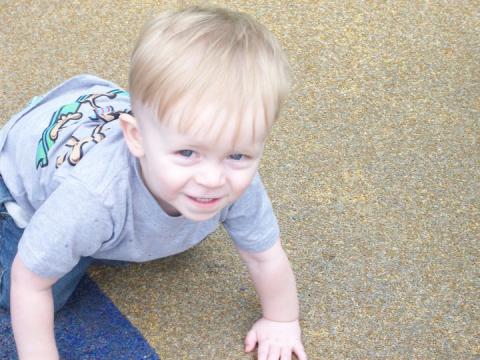When it comes to speech therapy one can safely say that not much is known about it, because of the fact that it has not been given its due recognition in the field of medicine. There are many parents with children who have many kinds of speech problems, but most of them generally do not know about the existence of speech therapy that can help their afflicted children. Those who are aware about speech therapy have various doubts about its rate of effectiveness due to the diminished attention given to the various benefits of speech therapy.
The most unnerving fact is that, parents who have toddlers with speech difficulties will never consider speech therapy as the first option at treating it. Hence, the best way is to know more about the beneficial aspects of speech therapy and its effectiveness.
Speech therapy information
Speech therapy is one of the medially accepted ways to treat the various difficulties and abnormalities in the speech of affected individuals. In most cases, the speech problems occur among toddlers.
Speech pathology is an area of medical science that looks into the complete specifics of speech including language, communications and other speech related issues. Speech therapy is a subset of speech pathology.
Most of the speech difficulties tend to be present as a birth defect, but there are occasions when toddlers, children as well as adults can be affected by speech difficulties due to trauma, injuries or a poor and unhealthy social environment.
The aim of speech therapy
Speech therapy usually covers all the aspects of speech pathology and its primary aim is the development of effective speech and communication in toddlers as well as redevelopment of normal speech in individuals who have undergone a trauma.
The level of language development and growth in affected toddlers as well as re-attainment of lost speech in affected individual usually depends on the magnitude of the speech difficulties endured by the patients. Each individual has unique speech difficulties that may either be present either from birth or acquired due to trauma or environmental deficiencies, and hence the recovery of normal speech and communication tends to vary among individuals.
The different types of speech deficiencies
Speech problems can be classified into three categories, i.e. voice/resonance disorders, fluency disorders and articulation disorders. Each of these categories of speech deficits are treated with different methods of speech therapy.
- Articulation disorders: This type of speech disorder is caused due to a combination of problems with secondary physical features such as the tongue, lips, jaws, hard or soft palate, teeth and cheeks, resulting in incorrect pronunciation of the syllables or words. This makes it difficult for affected individuals to effectively communicate their thoughts.
- Voice/Resonance disorders: This type of speech disorder is caused due to problems with primary physical features such as the voice box or the larynx, resulting in speech that is intermittent, nasal, too weak, muffled or too strong/loud. This type of speech disorder can lead to profound complications of the speech as it directly affects the voice organs.
- Fluency disorders: They do not result from problems with physical aspects, but are caused due to defects in the rate of speech. Individuals may either speak too fast leading to the cluttering of words, or they may speak too slow which leads to sentences that are filled with fillers, repetitions, etc.

Toddlers and speech therapy
Toddlers are at a stage of development which has a very high rate of speech gathering or acquisition. Therefore, toddlers who have deficits in speech development can greatly benefit from speech therapy. Speech therapy for toddlers is usually administered by a pediatric speech therapist. Such a therapist undergoes training that facilitates his/her ability to provide speech therapy services to toddlers.
The speech therapy for toddlers is a lot different from individuals who are trying to regain speech after trauma. Toddlers are in the initial stages of speech and language development and any developmental delays could greatly affect their ability to function effectively as adults. Hence, every toddler is treated as per its unique needs and defects.
Speech therapy for toddlers usually starts off with consultations to determine the severity of the problems and a treatment plan. The various speech therapy techniques are usually supplemented by the involvement of parents in supervisory roles at home, wherein they can assist the toddler in carrying out the various speech therapy exercises.
Every toddler has its own unique treatment plan or speech therapy as designed by the therapist. However, there are three broad categories of speech therapy that can be manipulated by the therapist as per individual toddler needs. They are listed below:
- Articulation therapy, wherein the therapist explicitly teaches the toddler the right sounds as well as the correct pronunciation of syllables and words. The toddler is taught on how to manipulate and use the tongue, mouth and other physical features for effective articulation.
- Language intervention is activity and play based, wherein the toddler is encouraged to converse and talk so as to develop its language and communication skills. Any deficiencies in toddler conversations require therapist intervention and correction.
- Oral motor therapy includes physical exercises of the oral muscles which is a more appropriate form of speech therapy in toddlers with physical abnormalities of the mouth or speech organs.